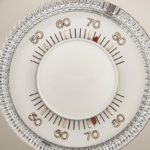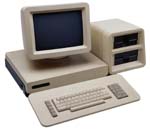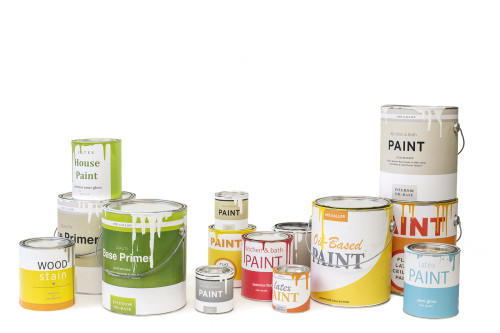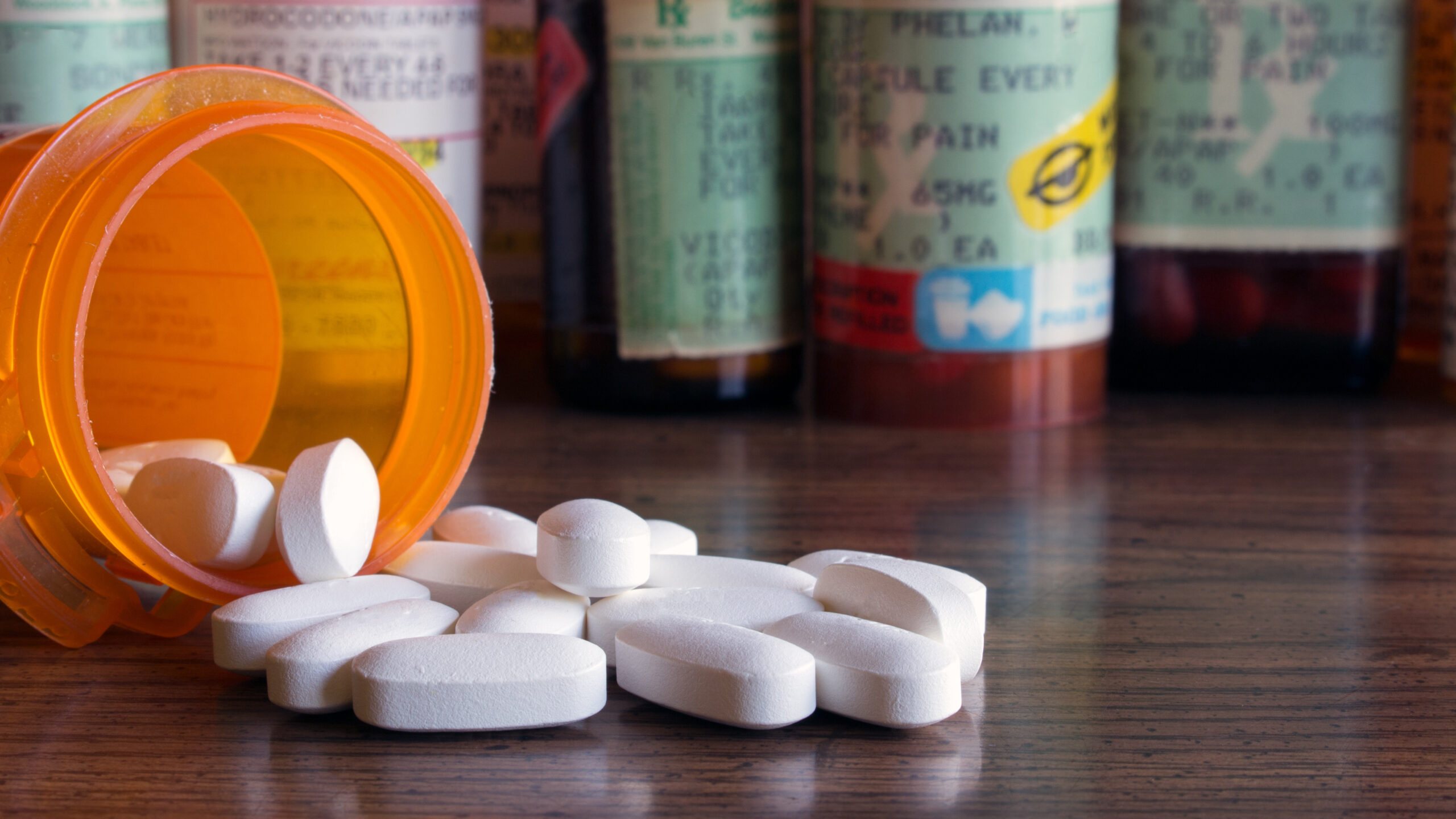Being less wasteful and recycling as much as possible isn’t just the right thing to do for Maine’s environment, it also creates job opportunities and saves taxpayer money by avoiding disposal and clean-up costs. Our waste also has unjust and disproportionate health impacts on our most vulnerable communities.
We absolutely need better policies in place that make doing the right thing the easiest, simplest thing to do for people and businesses—and while we are all stewards, it’s of utmost importance to hold corporations accountable for the waste they create.
Maine has had a goal of recycling 50% of our waste since 1989, but we have never reached it. In fact, we are going backwards. Maine also set a per-capita disposal rate reduction goal, and that, unfortunately, is increasing. Read NRCM’s Top Five Takeaways from Maine’s Latest Waste and Recycling Report to learn more about why that is happening and where the opportunity lies. There are many different types of product stewardship policy solutions we can pursue to help reach our goals. Here are just a few:
- Bans on specific problematic materials and chemicals, like Maine’s ban on single-use plastic bags and plastic foam food containers;
- Financial incentives to drive behavior, like charging for disposable coffee cups and paper bags to encourage reusables, and pay-as-you-throw policies to get people to recycle more at home;
- Standard regulations including minimum recycled content standards for products and packaging to support recycling end markets; accurate recycling instructions on packaging; and
- Extended Producer Responsibility (EPR) laws that hold companies accountable and financially responsible for the waste created by their businesses.
Extended Producer Responsibility Laws
Maine has long championed Extended Producer Responsibility (EPR) or "product stewardship" laws because they have proven effective at saving taxpayers money, reducing waste, and protecting our environment. Traditional recycling programs are run and funded by municipal governments. EPR programs shift the costs of dealing with difficult and dangerous items to the corporations and manufacturers who make and sell their products in Maine.
When producers of a product are required to take responsibility for establishing and/or funding recycling programs, they have an incentive to design greener, safer products that are less wasteful, more recyclable, and contain fewer toxins.
Thanks to NRCM’s leadership in partnership with local businesses, municipalities, and elected officials, Maine has one of the most comprehensive sets of EPR laws in the nation, covering a range of materials including: Mercury Thermostats; Fluorescent Light Bulbs; Electronic Waste; Rechargeable Batteries; Cell Phones; Unused Paint; Beverage Containers; Unused Drugs, and Packaging.
How to Participate in Maine's EPR Programs:

Thermostat
Mercury Thermostats
Earn $5.00 when you bring your old thermostat to one of more than 100 retail locations for recycling. Most towns also have waste collection sites where you can drop off your thermostat. You can also mail it back to the manufacturer for free. Learn more about why the safe collection of mercury containing products is important. Use the Maine Department of Environmental Protection’s (DEP’s) map to find out where to bring your old thermostat.
- Bring your thermostat to a participating wholesaler for a $5.00 mail-in coupon.
- Bring your thermostat to a participating retailer for instant $5.00 store credit.
- Send your thermostat back to the manufacturer in the mail.
Fluorescent Light Bulbs
Recycle your used fluorescent light bulbs for free at more than a hundred retail locations and at many town waste collection sites.
- Recycle your bulbs through your town’s municipal solid waste collection system.
- Recycling your compact fluorescent bulbs(CFL) at a retail location.
- Find a location on this list of all towns and retail locations that accept mercury-containing bulbs.
Use DEP’s map to find out where to bring your mercury-containing fluorescent bulbs:
 Electronic Waste
Electronic Waste
Recycle your electronic waste (e-waste) for little or no cost at more than 300 municipal waste collection sites. Most towns accept televisions, portable DVD players, game consoles, computer monitors, laptops, printers, digital picture frames, computers, and some other electronics. Find out more about the problems and solutions posed by electronic waste. Take certain devices to Best Buy or Staples. Or use DEP’s map feature to find where to bring your electronic waste.
Cell Phones and Rechargeable Batteries
Recycle old cell phones and rechargeable batteries for free at any cell phone retail location, including more than 300 Call2Recycle drop-off points around the state or most town waste collection sites.
 Unused Paint
Unused Paint
Maine residents can chose from more than 80 convenient locations to drop off unused paint, which prevents more than 200,000 cans of unused paint from being improperly disposed of in landfills and incinerators each year. This saves millions of dollars for Maine municipalities that no longer have the sole responsibility or manages all of the unused paint. Learn more about paint stewardship.
Redeemable Beverage Containers
Earn 5¢ to 15¢ per container when you recycle your redeemable beverage containers at a bottle redemption facility near you, or use a self-service kiosk such as the CLYNK system located in 48 Hannaford grocery stores across the state. Read about the history of Maine’s bottle bill and how it works.
 Unused Drugs
Unused Drugs
This program will require the pharmaceutical industry to fund and create a reliable, sustainable, and convenient statewide pharmacy collection program for unused drugs in Maine. The bill was passed into law in June 2021 and has not yet been implemented, so there is no way to participate in it at this time. Until then, you can dispose of unused drugs at take-back events hosted by your community or at your local police department. Do not flush your unused drugs. Learn more about this important new EPR program by reading NRCM’s testimony on the bill, and the bill fact sheet.
Packaging
The EPR for Packaging program will shift the costs of recycling packaging waste from Maine’s property taxpayers to the producers of packaging. It is not yet in effect, as details of the program will be determined over the coming years through an administrative rulemaking progress. Now is a good time to learn more about this important program, which you can do by reading NRCM’s testimony on the bill, and our explainer blog.
About Maine’s EPR Policy Approach
Maine has developed a systematic way to tackle our most problematic waste streams using EPR. Each year, our Department of Environmental Protection reports to the Joint Standing Committee on Environment and Natural Resources on the status of each of our EPR laws, and tees up potential new product categories for consideration by the Legislature.
Maine’s product stewardship law set a clear policy and process for methodically moving more product categories into an EPR system if they meet just one of these five following criteria:
- It contains toxics that pose the risk of adverse impact to the environment or public health and safety;
- A stewardship program that will increase recovery of the material for reuse and recycling;
- A stewardship program that will reduce costs for local governments and taxpayers;
- There is a proven history of success of the stewardship program in other states or countries, and;
- Existing voluntary programs are not effective enough.
Looking for More Information about How to Recycle in Maine?
Until Maine’s EPR for Packaging Law takes effect, towns will still be managing household recycling programs on their own. Rules, restrictions, and programs differ widely among Maine’s 433 towns. Most localities are equipped to recycle traditional materials—plastic, paper, aluminum, and glass. Some towns offer curbside pickup for paper, plastic, and metal. Some towns maintain collection facilities at which residents can drop off their household recyclables. Your town’s website is often the best place to find information about how, where, and when to recycle.








